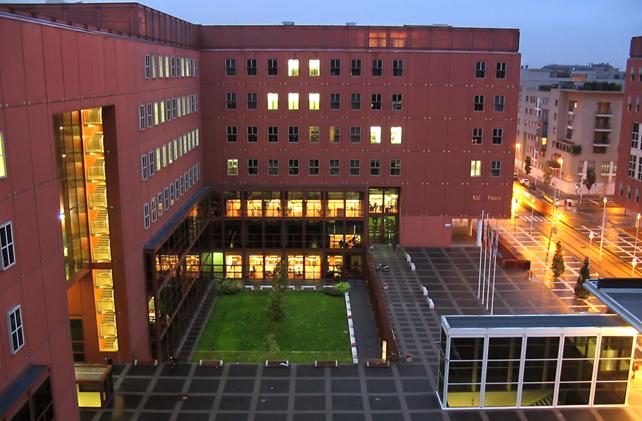Manuale C++
Ciao a tutti,
per approfondire gli argomenti trattati alle lezioni in laboratorio, vi consiglio di consultare il manuale:
C++ from the GROUND UP
Third Edition
Herbert Shildt
Davide e Andrea
Laboratorio di Informatica per la Fisica II
Ciao a tutti,
per approfondire gli argomenti trattati alle lezioni in laboratorio, vi consiglio di consultare il manuale:
C++ from the GROUND UP
Third Edition
Herbert Shildt
Davide e Andrea
Pubblicato da
Davide
alle
11:46
0
commenti
![]()
Ciao a tutti,
al fine di permettere a ciascuno di voi, anche chi sui propri computer non utilizzasse linux, abbiamo apprestato una macchina virtuale per permettere a ciascuno di voi di esercitarsi a casa allo stesso modo di come avviene in laboratorio.
La macchina virtuale è stata creata utilizzando VirtualBox, che è un sistema di virutalizzazione alternativo a quello utilizzato in Laboratorio ma che è opensource e quindi gratuitamente scaricabile (per tutte le piattaforme: Windows, OSX, Linux).
A questo link è possibile scaricare un breve PDF che guida nell'installazione della macchina virtuale.
La macchina virtuale stessa è invece disponibile a quest'altro link.
Attenzione: la macchina virtuale è un file molto grosso (1.5 GB circa) quindi assicuratevi di scaricarla da una postazione in cui abbiate una connessione ad internet a banda larga).
Ciao,
Andrea
Pubblicato da
Andrea
alle
11:46
0
commenti
![]()
Ciao a tutti,
il testo di riferimento per lo studio della parte teorica di statistica di questo corso è:
W.J. Metzger: Statistical methods in data analysis
che potete scaricare dalla pagina: http://www.wikifm.org/index.php/Laboratorio_II
Su suggerimento del prof. Zanotti vi segnaliamo anche i seguenti libri per la curare la parte di statisica di questo corso:
• J. Orear "Notes on Statistics for Physicists"
si trovano due versioni su internet, la più recente è del 1982 (rewised).
• R. J. Barlow,1a recent text book in the Manchester series. Most of what
you need to know is in this book, although the level is perhaps a bit low.
Nevertheless (or perhaps therefore), it is a pleasure to read.
• Siegmund Brandt,2 a good basic book at a somewhat higher level. Unfortunately,
the FORTRAN sample programs it contains are rather old-fashioned.
There is an emphasis on matrix notation. There is also a German edition.
• A. G. Frodesen, O. Skjeggestad, and H. Tøfte,3 also a good basic text (despite
the words “particle physics” in the title) at a higher level. Unfortunately, it
is out of print.
• W. T. Eadie et al.,4 or the second edition of this book by F. James,5 a book
at an advanced level. It is difficult to use if you are not already fairly familiar
with the subject.
• G. P. Yost,6 the lecture notes for a course at Imperial College, London. They
are somewhat short on explanation.
• Glen Cowan,7 a recent book at a level similar to these lectures. In fact, had
this book been available I probably would have used it rather than writing
these notes.
Davide e Andrea
Pubblicato da
Davide
alle
10:48
0
commenti
![]()
